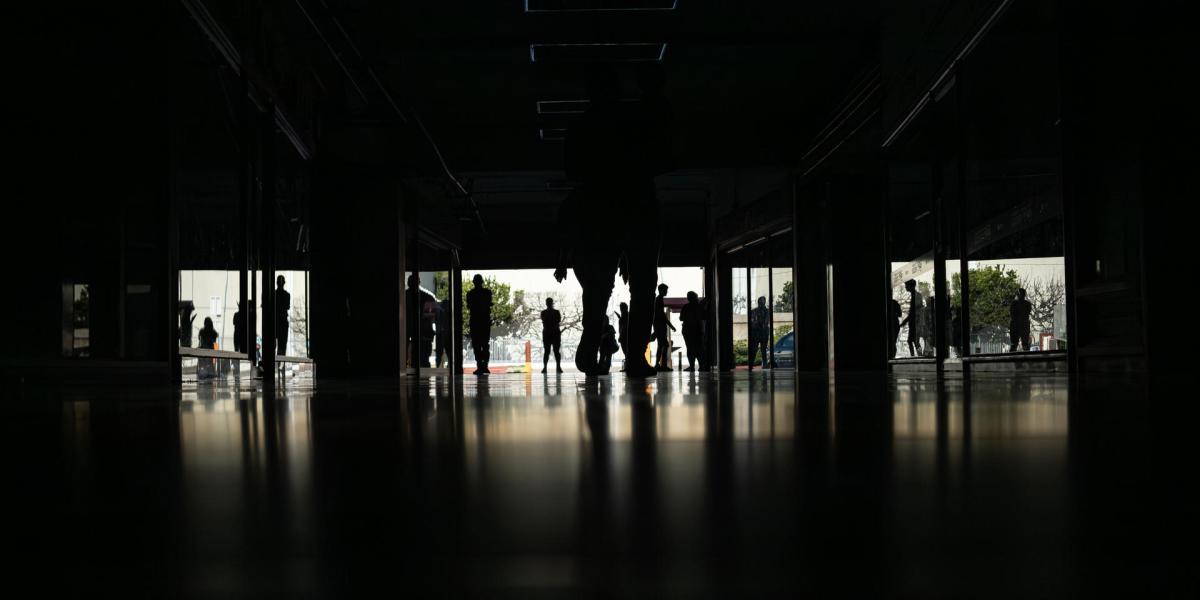What is really known about what happened?

Traffic lights off, connectivity problems and businesses open but in the dark: This Friday’s blackout In Venezuela it is a déjà vu of which left the neighboring country in darkness for several days in 2019which the government then described, as well as on Friday, as “sabotage” by the opposition.
The power failure occurs when the country is experiencing a political crisis after the National Electoral Council (CNE), close to the ruling party, declared Nicolás Maduro the winner based on results that are still unknown in a disaggregated manner, which is considered by the opposition and several countries as a sign of “fraud”, denounced by the Democratic Unitary Platform, which insists on the victory of its candidate, Edmundo Gonzalez Urrutia.
The blackout occurred at 4:50 a.m. (local time) and affected Caracas and the 23 states of the country. Barely 12 hours later, the electric service began to return to normal. Although at the time of going to press there was no updated official report, users on social networks reported an intermittent recovery in several neighborhoods of Caracas and in other states.
On his Telegram channel, Maduro called for “calm” and described the failure as a “criminal attack” by “fascism,” as it usually refers to the opposition. “Desperate fascism is attacking the people, but together we will overcome this new attack,” wrote the president, who did not specify where the problem originated or the extent of the damage.
Why are blackouts frequent in Venezuela?
Blackouts have been frequent in Venezuela for a decade, especially in the provinces. The government always attributes them to attempts at destabilization by the opposition, but experts dismiss this argument and link them to lack of investment, incompetence and corruption.
“The blackout is a consequence of the lack of investment and maintenance of the national electrical system,” he said in conversation with The Weather Venezuelan lawyer Mariano de Alba, who predicts that this scenario could worsen due to the current crisis.
“The Maduro government faces a very complicated scenario in its relations with countries with democratic governments. This international pressure and isolation puts the Venezuelan economy in a very negative situation, and that is Maduro’s main problem,” explains De Alba.
The only balance sheet known at the time of writing these lines was given by Nicolas Madurowho reported that the failures were caused by an attack on the Guri hydroelectric power stationbut without going into details.
Diosdado Cabello, the number two in Chavismo, denounced that the blackout was part of an alleged “coup plan” for which González and María Corina Machado are accused, and warned that “there will be justice” in this case. González was supposed to appear before the Prosecutor’s Office this Friday to testify in a criminal investigation against him, but he ignored the summons for the third time.
Venezuela had already suffered a situation like this. The last major blackout occurred on March 7, 2019, when a large part of the country was without electricity for four days. At that time, the government pointed to the opposition and the United States and Colombia, led by Donald Trump and Ivan Duquerespectively, of an “electromagnetic attack”. That year the Government reported three electrical “sabotages”.
“This is a new electrical sabotage,” said Communications Minister Freddy Ñáñez. “We experienced it in 2019, we know how much it has cost us to recover the national electrical system since then,” he added.
2019 also coincided with one of the worst moments of the economic crisis in that country, which gave way to de facto dollarization in the country.
This time, organizations such as Ve Sin Filtro reported that, on average, internet connection dropped by up to 20 percent across the country, meaning that eight out of 10 Venezuelans were left, at least for a few hours, without being able to access social networks, digital payment methods and electronic communication channels. The blackout also limited – in some cases completely – the telephone signal.
With the blackout, the social network X blocked since August 8 and the telephone connection working only partially, some versions suggest that it could all be a new move by the regime to further isolate the country.
Analysts such as Mariano de Alba point out that while these actions can indeed cut off many people from communication in a context of extremely high repression – 25 deaths and more than 2,400 arrests were recorded during post-election protests – “even with a blackout, crucial information will continue to come out because the deterioration of the electrical situation in Venezuela has been going on for many years and there is part of the population, although a minority, that has alternatives.”
Independent journalism needs the support of its readers to continue and ensure that uncomfortable news that they don’t want you to read remains within your reach. Today, with your support, we will continue working hard for censorship-free journalism!
